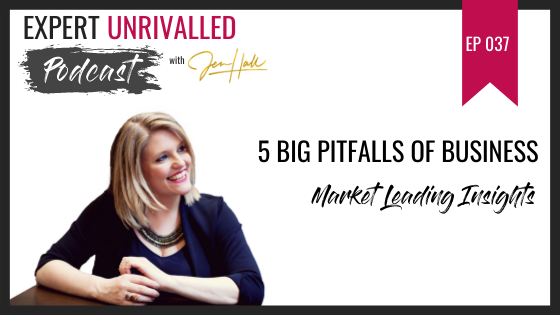In this episode I cover 5 big pitfalls in business that have kept myself and my clients (in the past) from achieving our full potential AND how to overcome them!
Useful Links:-
Book onto my Evolve & Elevate Strategy Session – http://www.jen-hall.com/strategysession
Book a Call with Jen – bit.ly/claritycallpodcast
Download my free Ultimate Guide to Becoming a Market Leader – http://bit.ly/MARKETLEADERGUIDE
Send your emails to jen@jen-hall.com
[spp-transcript]

